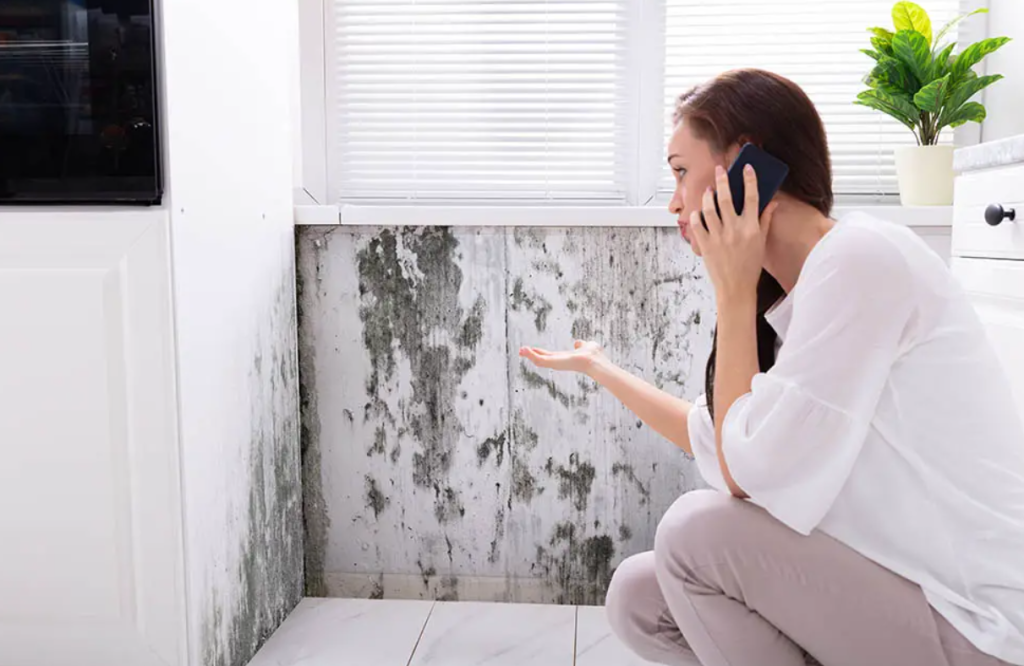Can I Refuse to Pay Rent If There Is Mold? Exploring Tenant Rights and Legal Considerations
As a tenant, encountering mold in your rented property can be concerning. The presence of mold not only affects the condition of your living space but can also pose potential health risks. In this article, we’ll delve into the question that’s likely crossed your mind: “Can I refuse to pay rent if there is mold?” We’ll explore your rights as a tenant, the responsibilities of landlords, and the legal considerations that come into play when dealing with mold issues in your rental unit.
Identifying Mold in Rental Properties
Detecting mold in your rental property is essential for maintaining a safe and healthy living environment. Mold can take various forms, from visible patches of discoloration to a distinct musty odor. Moreover, mold growth can lead to health symptoms such as allergies, respiratory issues, or worsened asthma.
While some molds are harmless, others can be toxic and harmful to your health. If you notice any of the following signs, it’s important to take action promptly:
- Visible Mold: If you see mold growth on walls, ceilings, floors, or other surfaces, it’s a clear indication of a problem.
- Musty Odor: A persistent musty or earthy smell can suggest the presence of hidden mold, even if you can’t see it.
- Health Symptoms: If you or your family members experience unexplained health issues like coughing, sneezing, watery eyes, or skin irritation, mold could be a contributing factor.
Identifying mold early allows you to address the issue before it becomes more extensive and potentially hazardous. Once you’ve confirmed the presence of mold, you might wonder about your rights as a tenant and what actions you can take.
Tenant Rights and Habitability
As a tenant, you have the right to a habitable living environment, which includes protection against health hazards like mold. Landlords are legally obligated to provide rental properties that are safe and fit for human habitation. This means that landlords must address issues that could affect your health and well-being, such as mold infestations.
When mold is present in your rental unit, it can compromise the habitability of your living space. Mold growth not only damages the property’s structural integrity but also poses potential health risks to you and your family. In many jurisdictions, laws and regulations require landlords to take action when mold issues arise.
Landlords should be proactive in addressing mold problems promptly and effectively. This includes conducting necessary repairs, eliminating the source of moisture that fuels mold growth, and performing mold remediation to ensure a safe living environment for tenants.

Communicating Mold Issues to Landlords
If you suspect or identify mold in your rental property, it’s crucial to notify your landlord as soon as possible. Effective communication is key to addressing the issue promptly and collaborating with your landlord to find a solution.
When communicating with your landlord about mold issues, consider the following steps:
- Written Notice: Send a written notice to your landlord detailing the mold problem. This provides a record of your communication and ensures that both parties are aware of the situation.
- Include Details: Describe the location of the mold, the extent of the growth, and any health symptoms you or your family members have experienced. Providing specific details can help your landlord understand the severity of the situation.
- Request Action: Clearly state your request for action. Whether it’s repairs, remediation, or inspection, make sure your landlord knows what steps you expect them to take.
- Document Everything: Keep copies of all communication, including emails, letters, or texts exchanged with your landlord. This documentation can be valuable if further action is needed.
Open and transparent communication sets the foundation for addressing mold issues effectively. However, if your landlord fails to take appropriate action, you might wonder about the possibility of withholding rent until the mold problem is resolved.
Withholding Rent as a Last Resort
Can I refuse to pay rent if there is mold? This is a question that arises when tenants feel frustrated by the lack of action taken by their landlords to address mold issues. While withholding rent might seem like a straightforward solution, it’s important to understand that it’s a complex matter that requires careful consideration and adherence to legal procedures.
Legal Considerations and Tenant’s Rights
Before deciding to withhold rent due to mold issues, tenants should be aware of their legal rights and the specific laws in their jurisdiction. While the concept of withholding rent in response to uninhabitable conditions is recognized in many places, it’s crucial to follow proper legal procedures to avoid potential consequences.
To consider withholding rent as a viable option, tenants should typically meet certain criteria, such as:
- Notifying Landlord: Prior to withholding rent, tenants must provide their landlord with written notice of the mold issue and a reasonable timeframe to address it.
- Local Laws: Familiarize yourself with local tenant protection laws to understand the conditions under which rent withholding is permissible.
- Health and Safety: The presence of mold must significantly impact the habitability of the rental property and pose a serious health or safety risk.
- Repair Request: Tenants should demonstrate that they have requested the necessary repairs or mold remediation from the landlord and have given them adequate time to respond.
It’s important to note that improperly withholding rent can lead to eviction or legal action by the landlord. To navigate this process effectively, tenants are strongly advised to seek legal counsel or assistance from tenant advocacy organizations.
Seeking Legal Assistance
If you’re considering withholding rent due to mold issues, consulting with a legal professional is essential. Laws regarding rent withholding vary by jurisdiction, and legal experts can provide you with accurate information tailored to your situation.
A legal expert can help you understand:
- Eligibility: Whether your situation meets the legal criteria for withholding rent.
- Notice Requirements: The proper way to provide notice to your landlord and the timeframe they should be given to address the issue.
- Escrow Accounts: In some cases, tenants might be required to deposit the withheld rent into an escrow account to demonstrate their willingness to pay pending resolution.
- Tenant Rights: How to protect your rights as a tenant throughout the process.
Remember, while withholding rent can be a tool to prompt action, it’s essential to approach the situation thoughtfully and within the boundaries of the law. The goal is to create a habitable living environment, and seeking proper legal guidance can ensure that your actions are effective and legally sound.
Documenting Mold Issues
When dealing with mold issues and potential rent withholding, thorough documentation is key. Keeping a detailed record of all correspondence, notices, repairs requested, and any evidence of mold’s impact on your living conditions can support your case in the event of legal proceedings or disputes with your landlord.
Consider the following steps for effective documentation:
- Written Notices: Keep copies of all written notices you send to your landlord, including emails, letters, or text messages.
- Photographic Evidence: Take clear photos of the mold growth, its location, and any related damage caused to your personal belongings.
- Health Impact: If you or your family members experience health symptoms due to mold, keep records of medical visits, diagnoses, and prescribed treatments.
- Repairs and Remediation: Document any repairs or remediation efforts undertaken by the landlord, including dates and details of the work performed.
- Communication: Maintain a log of all communication with your landlord, noting dates, times, and key points discussed.
Alternative Dispute Resolution
Dealing with mold-related disputes doesn’t always have to escalate to withholding rent or legal action. Alternative dispute resolution methods can offer a more collaborative and efficient way to address the issue and find a resolution that satisfies both tenants and landlords.
Mediation: Mediation involves a neutral third party who facilitates communication and negotiation between tenants and landlords. The goal is to reach a mutually acceptable solution without resorting to formal legal proceedings. Mediation can save time, money, and potential strain on the landlord-tenant relationship.
Arbitration: Arbitration is a process where both parties present their case to an impartial arbitrator or panel. The arbitrator’s decision is binding and serves as a resolution to the dispute. While more formal than mediation, arbitration can provide a quicker resolution compared to court proceedings.
Negotiation: Direct negotiation between tenants and landlords can often lead to a satisfactory resolution. Open and respectful communication, along with a willingness to find common ground, can help both parties address the mold issue effectively.
Consulting Tenant Organizations: Many areas have tenant advocacy organizations that offer guidance and support to tenants facing issues like mold. These organizations can provide information about tenant rights, local laws, and possible steps to take.
In the face of mold issues in your rental property, the question of whether you can refuse to pay rent becomes an important consideration. While withholding rent is an option, it should be approached with caution and a thorough understanding of your rights and legal obligations. Communication with your landlord, documentation of mold issues, and seeking legal advice are crucial steps in this process.
Remember that resolving mold-related problems is about ensuring a safe and habitable living environment for both tenants and landlords. Exploring alternative dispute resolution methods can help facilitate constructive conversations and timely resolutions.
Before taking any significant steps, consult with legal professionals who specialize in tenant rights and rental property laws. They can provide you with tailored advice and guidance based on the specific laws in your jurisdiction.
Ultimately, the key to addressing mold issues while protecting your rights lies in informed decision-making, open communication, and a proactive approach to maintaining a healthy living space.
Navigating the challenges of mold issues in your rented property requires a careful balance between asserting your tenant rights and adhering to legal obligations. While the question of refusing to pay rent due to mold may arise, it’s essential to approach the situation with a well-informed perspective and an understanding of the legal landscape.
As a tenant, you have the right to a habitable living environment that is free from health hazards like mold. Landlords are obligated to provide rental properties that meet these standards and promptly address mold problems to ensure your well-being.
Communication plays a central role in addressing mold issues effectively. If you detect mold in your rental unit, notify your landlord as soon as possible through written communication. Document the mold growth, its location, any health symptoms you or your family experience, and your requests for action.
Tenant rights in cases of mold issues often include the possibility of withholding rent as a last resort, but this should be approached with caution. Familiarize yourself with the legal considerations and criteria that must be met before considering this option. Seeking legal assistance or consulting with tenant advocacy organizations can provide clarity and ensure you’re within your rights.
Should the situation escalate, alternative dispute resolution methods like mediation and negotiation can facilitate a productive dialogue between you and your landlord. These methods offer the opportunity to find a resolution that benefits both parties and avoids lengthy legal battles.
Ultimately, addressing mold issues requires a combination of assertiveness, communication, and legal knowledge. By understanding your rights and obligations, you can work towards a safe and habitable living environment that supports your well-being and peace of mind.
Remember that while this article provides valuable information, consulting with legal professionals familiar with your jurisdiction’s laws is essential for personalized guidance.
Frequently Asked Questions (FAQs) – Refusing to Pay Rent Due to Mold
Q: Can I refuse to pay rent if there is mold in my rental property?
A: Yes, in certain situations and jurisdictions, tenants may have the option to withhold rent if mold poses a health risk and landlords fail to address the issue.
Q: What is the first step I should take if I discover mold in my rented home?
A: Notify your landlord in writing about the mold issue and request prompt remediation. Document the communication for your records.
Q: Is mold always considered a valid reason for rent withholding?
A: No, the severity of the mold issue and its impact on habitability will determine whether rent withholding is appropriate and legally justified.
Q: Can I withhold rent immediately after notifying my landlord about mold?
A: Typically, you should give your landlord a reasonable amount of time to address the mold problem before considering rent withholding.
Q: What should I do if my landlord ignores my requests to address the mold issue?
A: Consult local tenant laws and regulations, and consider seeking legal advice before deciding on further action.
Q: Can my landlord evict me if I withhold rent due to mold?
A: It’s possible, which is why it’s important to follow legal procedures and seek professional advice before withholding rent.
Q: What other options do I have if I’m concerned about mold but don’t want to withhold rent?
A: Consider mediation, negotiation, or involving tenant advocacy organizations to find a resolution.
Q: Can I use the withheld rent to pay for mold remediation myself?
A: Using withheld rent for repairs without legal justification could lead to legal complications. Consult with a legal expert before taking such action.
Q: Should I continue paying rent if my landlord is actively addressing the mold issue?
A: In most cases, you should continue paying rent while the issue is being resolved, unless advised otherwise by legal professionals.
Q: Are there specific laws that govern mold-related tenant rights?
A: Laws vary by jurisdiction. Research local tenant protection laws or consult a legal expert familiar with your area.
Q: What evidence should I collect to support my case if I decide to withhold rent?
A: Gather photographs of the mold, written communication with your landlord, and any medical records related to health symptoms caused by mold.
Q: Can I break my lease if mold becomes a recurring issue?
A: In some cases, repeated mold problems that aren’t addressed could provide grounds for lease termination. Consult legal experts for guidance.
Q: How can I determine if the mold in my rental property is hazardous to my health?
A: Consult a professional mold inspector or tester to assess the type and extent of the mold growth.
Q: What should I do if my landlord claims that the mold is not their responsibility?
A: Research local laws to determine the landlord’s obligations and consult legal experts if needed to clarify responsibilities.
Q: Can I report mold issues to local health authorities?
A: Yes, some jurisdictions allow tenants to report mold problems to health departments or housing agencies for investigation.
Q: Can my landlord increase my rent or take retaliatory action if I report mold issues?
A: Retaliatory actions by landlords are prohibited by law in many places. Document any such actions and seek legal advice if necessary.
Q: Is it better to address mold issues through legal action or negotiation?
A: Negotiation and communication are often preferable, but legal action might be necessary if communication fails or if health risks persist.
Q: How can I protect myself from mold-related health issues while waiting for remediation?
A: Improve ventilation, use dehumidifiers, and minimize moisture buildup to reduce the risk of mold growth.
Q: Can I claim compensation for health issues caused by mold exposure?
A: Consult legal experts to determine if you have grounds for compensation due to mold-related health problems.
Q: How long does mold remediation typically take, and can I stay in the property during the process?
A: The duration of mold remediation varies. In some cases, you might need to temporarily vacate the property for safety reasons.




